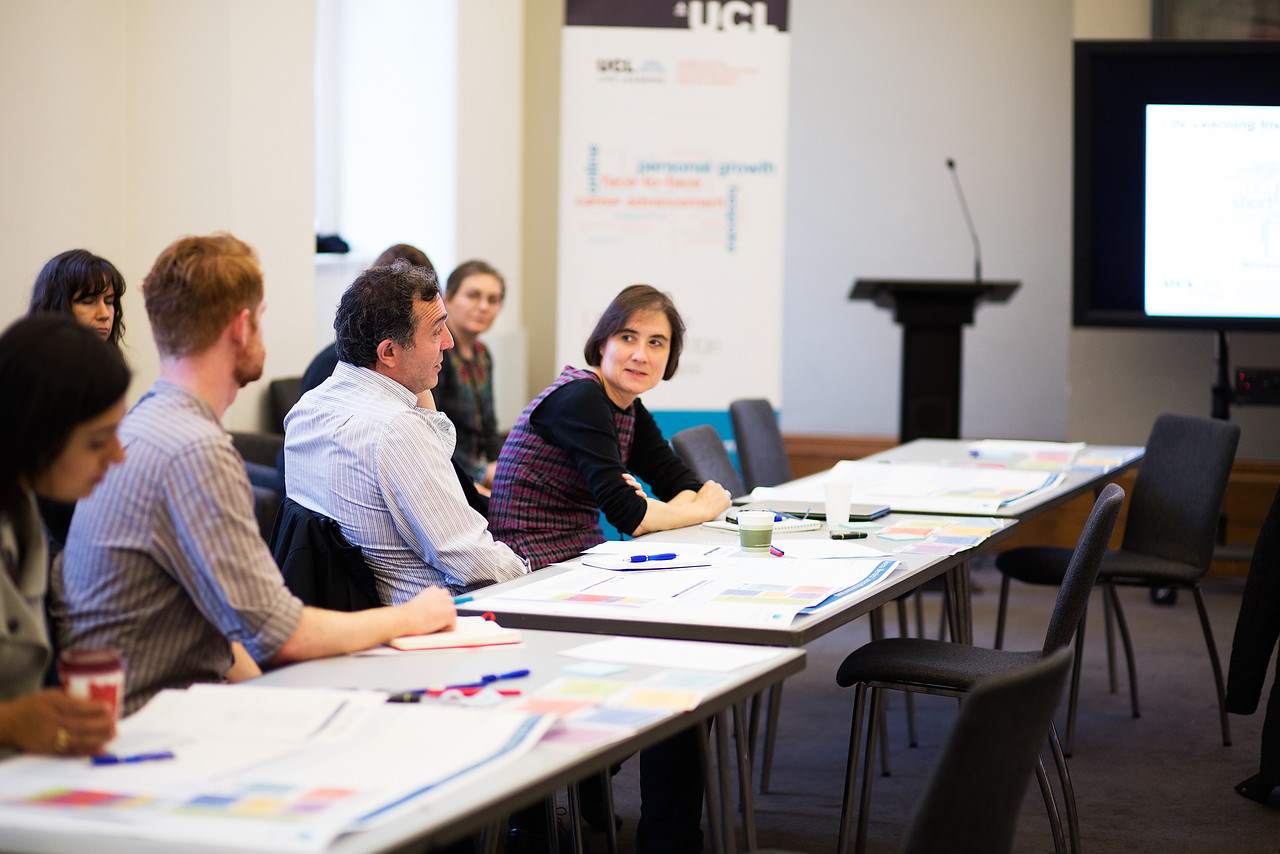Brexit, trade, migration and higher education

The aim of this project was to investigate the implications, implementation and consequences of Brexit for UK universities, including the effects in relation to migration, international education and financial sustainability.
About this project
This project was part of the ESRC’s The UK in a Changing Europe initiative which supported research into the relationship between the UK and the European Union (EU).
UK universities are extensively engaged in Europe, in collaborative research and infrastructure and through EU citizen staff and students. The UK’s departure from the EU has many potential consequences for UK universities and their staffing, research, international education and financial sustainability.
Brexit disrupted existing projects, networks and activities and led to sharp reductions in staff, students and/or income, in some or all universities. Universities had to make rapid and well-judged adjustments, build new relations and activity portfolios in Europe and beyond, and grapple with challenges to human resource management, risk management, financial sustainability, mission, governance and local implementation systems.
The project used empirical data to identify and better understand the specific challenges faced by the UK’s higher education sector. It focused on the capacity of UK universities to respond to these challenges, alongside the other changes during this period in regulatory structures, immigration policy, the management of teaching performance and the entry of new providers.
The generic research questions were:
- What are the perceived implications of Brexit for UK universities as leaders and others see it?
- What are the principal responses of universities and what are their capabilities to monitor, judge, strategise, respond, initiate and make internal changes, in relation to Brexit?
- How do these factors vary by UK nation; university mission, status, resources; and discipline?
As well as possible scenarios within the universities themselves, the project looked at the perceived implications of Brexit in the context of universities’ broader relationships with local, national and European communities.
The research consisted of case studies in a selected group of universities incorporating sector differentiation in status, resources, European engagement as well as variations across the UK nations.
Policy implications
This project ws particularly relevant to policies concerning migration and trade. Higher education is closely affected by the policy settings for staff mobility, retention and recruitment. It is also affected by international student policy and regulation, which have consequences for tuition revenues and balance sheets.
The project highlighted blockages to policy implementation and strategic redirection. Individual university case studies will allow tracking of specific change processes.
Project methods
Case selection
In Phase 1 the 12 universities were selected using a modified version of the four vertically differentiated categories of UK higher education institutions (HEIs) identified by Boliver (2015).
Boliver uses cluster analysis establish distinctive university groupings based on research quantity and quality, student satisfaction with teaching, endowment and investment income, spending on academic services per student, student-staff ratios, academic and social selectivity of student intake, and outcomes for degree holders using four different measures.
Oxford and Cambridge occupied the first tier, most older universities were in the second tier and other public universities fell in tiers 3-4. In this project one university were drawn from tier 1 and at least two universities from tiers 2-4.
Boliver’s stratified groupings were used because of the potential for differential effects (e.g. in revenues and financial sustainability) in Brexit-related changes, for example a two-tier visa policy. In addition, there were universities from all four nations given potentials for national variation in the implications of Brexit; variation in tiers 2-4 in the extent of European engagement; and one private provider with a significant international student body. All universities covered health, technology, social science to facilitate comparison.
Interview data
The semi-structured interviews in Phase 2 included the academic leader (e.g. vice-chancellor), chair of governing body, executive leaders in research and international, chief financial officer, head of human resources, executive deans in three disciplines (health, technology, social science), about three research professors from these disciplines, and student union. Three months after completion of interviews, selected interviewees were sent an email questionnaire designed to track possible changes since the interviews, in the volatile setting.
Data collation and analysis
The 120-140 interviews were transcribed and hand-coded, and analysed using content categories, finalised in Phase I that will be derived from Stensaker et al (2014) on ‘Factors affecting strategic change in higher education’ and supplemented by others including Clark (1983), Marginson and Considine (2000), Shattock (2010), Deiaco et al (2012), Fumasoli et al (2015), Thoenig and Paradeise (2016).
Team

Publications
CGHE webinar
- Brexit and UK higher education after 6.6 years: You know the answer, don’t you?
CGHE Webinar, February 2023.
Book
- The European Union’s Modernisation Agenda for Higher Education and the Case of Ireland, Peter Lang, College of Europe Studies, Volume 20, 2018
Book chapter
- Marginson, S., Papatsiba, V., Xu, X. (in press, 2020). Feeling the Brexit shock: European connectedness and the existential crisis in UK higher education. In C. Callender, W. Locke and S. Marginson, Changing Higher Education for a Changing World. London: Bloomsbury.
- Papatsiba, V. (forthcoming, 2020). Higher education and European integration policies: More than fifty years on. In Marilyn J. Amey, Miriam E. David (eds) The SAGE Encyclopedia of Higher Education.
- The EU’s external engagement in higher education: Externalizing the Bologna Process, in Sieglinde Gstöhl, Simon Schunz and Chad Damro, eds., The European Union’s Evolving External Engagement: Towards New Sectoral Diplomacies? Abingdon: Routledge, 2018
Journal articles
-
- Highman, L. (2023) Higher education and research: multiple negative effects and new no opportunities after Brexit.
- Highman, L. (2019) The distribution of EU students and staff at UK universities: patterns and trends. Tertiary Education Management 25 (4), pp. 311–326.
- Highman, L. (2019) Future EU-UK research and higher education cooperation at risk: What is at stake? Tertiary Education Management 25 (1), pp. 45–52 doi:10.1007/s11233-018-09013-w
- Highman, L. (2018). Repositioning UK partnerships post-Brexit. International Higher Education, No. 95, Fall 2018.
- Creating national champions in France: a little less égalité, a little more sélectivité?
International Higher Education, 2018 - Modernising Higher Education? The influence of European and international agendas on differentiation in the mission and roles of higher education institutions in Ireland
Trinity Education Papers, Volume II, 2013
Policy briefs
- The Brexit White Paper: what does it mean for higher education and research? Centre for Global Higher Education policy briefings, Policy briefing 9, 9 August 2018
- The UK’s participation in Horizon Europe: caught in a game of high politics? Centre for Global Higher Education policy briefings, Policy briefing 8, 4 June 2018
- University staff demographics: the fabric of UK universities at risk from Brexit, Centre for Global Higher Education policy briefings, Policy briefing 6, 20 April 2018
- EU students at UK universities: patterns and trends, Centre for Global Higher Education policy briefings, Policy briefing 5, 5 April 2018
- Redefining a Post-Brexit EU-UK Partnership in Research and Higher Education, College of Europe Policy Brief series, #6.18, April 2018
- Creating a new relationship in research, science, and innovation with the EU, Centre for Global Higher Education policy briefings, Policy briefing 3, 1 November 2017
- Brexit and the issues facing UK higher education, Centre for Global Higher Education policy briefings, Policy briefing 2, 27 July 2017
- The European Union’s modernisation agenda for universities: the rising stars of French higher education, College of Europe Policy Brief series, 2016, #5.16, 2016
Research findings
- Preserving the DNA of UK universities: the key role of non-UK postgraduate research students, Centre for Global Higher Education research findings, 17 July 2018




